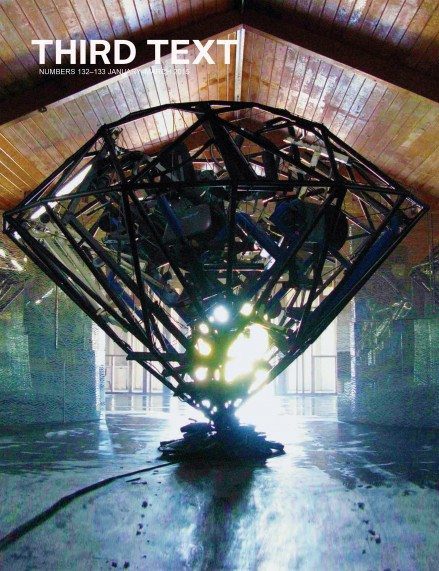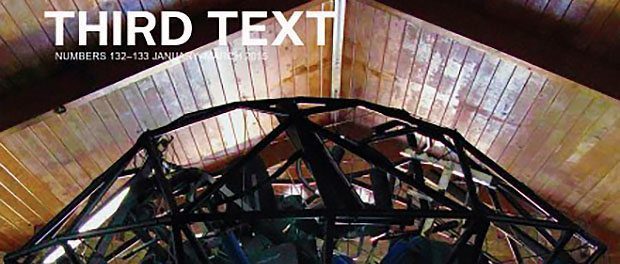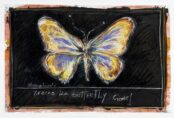[dropcap style=”font-size:100px; color:#992211;”]O[/dropcap]riginally launched in 1987 counter-institutional art review Third Text cast a long shadow and over its course has contained some of the most insightful and rebellious art criticism in British history.
Relaunched after a brief hiatus we expect controversy and insight in equal measure.
Third Text Editor-in-Chief Richard Dyer discussed the launch as follows:
After a completely independent review and subsequent radical restructuring of the organisation, Third Text is very excited to re-launch the journal. I would like to introduce a new, independently elected group of Editors, Advisory Board members and Trustees (please see www.thirdtext.org).
The journal will build on its past achievements, and explore emerging areas of timely and pressing research into visual culture and contemporary art. Since its inauguration in 1987, Third Text has established itself as the leading international journal, dedicated to the critical analysis of contemporary art in the global field. It has brought with that analysis a particular attentiveness to shared experiences of colonial histories and the impact of globalisation on diverse cultural practices.

The journal supports new and established voices, and in seeking to avoid intellectual closure, provides a platform for the articulation, contestation and debate of diverse theoretical positions. Third Text has distinguished itself by its pioneering study of the exclusionary zones of ‘centre’ and ‘periphery’ and by its challenge to Eurocentric and ethnocentric notions of aesthetic criteria that marginalise – and at times continue to neglect – the work of culturally diverse practitioners.
Forged in a period of passionate discussions of multicultural policy, studies of race and identity politics, the journal has continued to broaden and deepen those considerations by making significant contributions to the critical analysis of such diverse areas as: artistic practice in the Global South; contemporary art and political ecology; revolutionary aesthetics; and culture in transitional and transnational societies.
We will continue to advance these areas of cutting-edge research, including an examination of the complex cultural realities that are emerging and competing for recognition in the globalised artworld. In addition, we will bring fresh analysis to the creeping forms of neocolonialism and manifold modes of socio-political, ethno-religious, and ecological-economic crises that have defined and resulted from the contested hegemony of neoliberal capitalism worldwide. In choosing to retain its title, we pay homage to the journal’s groundbreaking legacy, and aspire to continue its longstanding commitment to investigating artistic practices within and beyond the Euro-American horizon.
The journal remains dedicated to a position of critical independence – a third space – outside the commercial and institutional forces that are exerting growing pressure on shaping, and sometimes obstructing the critical discussions of art, culture and politics today. Third Text offers a platform to pursue critical dialogue about experimental cultures, to advance independent education, and to study the historical and current conditions of art’s practice, reception and distribution in a global framework.

The aim of art is to represent not the outward appearance of things, but their inward significance. – Aristotle





















